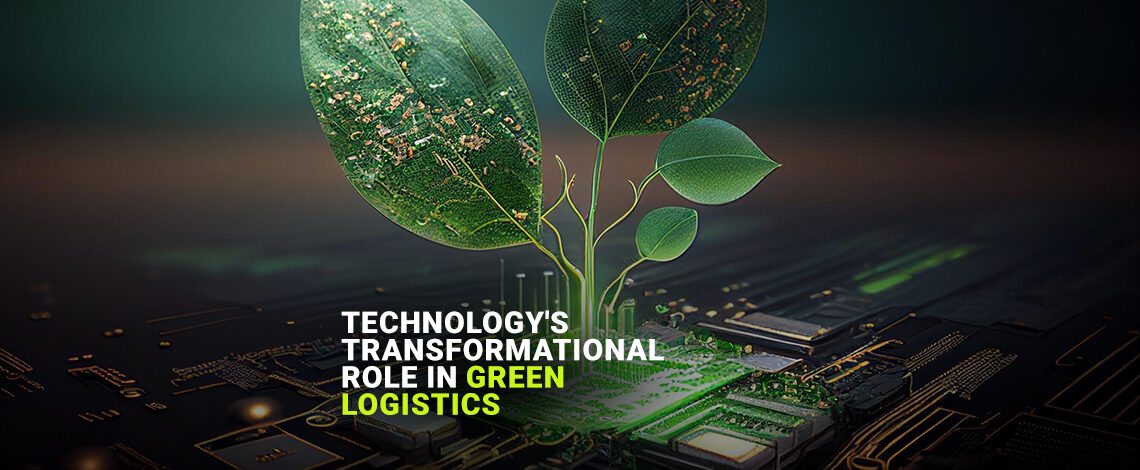According to Gartner, sustainable technology has become one of the top three priorities for investors and is among the top 10 strategic technology trends for 2023.
In a world where environmental concerns are no longer matters that can be ignored but everyday realities, industries, especially logistics are under growing pressure to address their ecological impact. One of the key hurdles in adopting sustainability is the complex web of challenges. From optimizing delivery routes to reducing emissions and efficient resource allocation, logistics leaders face multi-faceted challenges on their path to improvement.
At first glance, the fusion of technology and sustainability might seem like an unconventional pairing. Yet, this duo has the potential to usher in transformative change steering the industry towards a more eco-conscious future.
As stated by the World Economic Forum in the context of the transition to low-carbon supply chains, artificial intelligence (AI), 3D printing, and digital twins are “some of the powerful tools enabling the next wave of climate change solutions”
Let’s examine how these technologies integrate with sustainability in the logistics domain:
IoT orchestrates real-time data from devices, sensors, and vehicles. This empowers logistic businesses to eliminate the need for physical checks by providing real-time data and visibility.
AI, powered by predictive analytics and machine learning, transforms decision-making through scenario-modeling, optimising resource allocation and predicting demand shifts for eco-efficiency. Blockchain creates a secure global network where you have control, offering data encryption and unalterable records that ensure supply chain transparency.
The integration of technology into logistics isn’t a futuristic dream; it’s a reality that’s transforming the industry as we know it. Last-mile delivery is optimized through drones, AI enhances operations, and data insights are shaping decisions. It’s a win-win scenario where businesses thrive, and the planet benefits.

But what does this all mean for sustainability? The implications are vast.
Sustainability in logistics becomes more than just a set of practices; it becomes a strategic advantage. When technology is integrated into sustainability practices within logistics, it enhances decision-making and resource allocation. This means that companies can make informed choices about where to invest resources, such as transportation assets and energy consumption reduction efforts. Technology provides real-time data and visibility, allowing for better insights into operations and enabling data-driven decision-making. This, in turn, leads to enhanced operational efficiency, cost savings, and a reduced environmental footprint.
At TNPSFL, we bring our extensive industry experience to help and support you on your sustainability journey. Our team of over 24 sustainability experts, spanning various industry sectors, along with our 300+ supply chain specialists, is here to assist you in achieving your sustainability goals.
We understand the challenges you face and can guide you through practical solutions and regulatory frameworks such as the CSRD and TNFD. With us by your side, you can confidently work toward a greener, more sustainable future and earn certifications that showcase your commitment to sustainability leadership.
Book a free call with us and let us help you on your journey to sustainability!







